-
 chevron_right
chevron_right
Anna’s Archive Loses .LI Domain As Legal Pressure Mounts
news.movim.eu / TorrentFreak • 8 hours ago • 2 minutes
 Anna’s Archive
has faced a barrage of domain takedowns in recent weeks, after Spotify and several major record labels filed a high-profile lawsuit.
Anna’s Archive
has faced a barrage of domain takedowns in recent weeks, after Spotify and several major record labels filed a high-profile lawsuit.
The lawsuit was a direct response to Anna’s Archive’s announcement that it had backed up Spotify , with plans to gradually release the data, including the music files.
Spotify and the labels aimed to stop this. They obtained a preliminary injunction targeting domain registrars and registries, which resulted in the suspension of the .org domain as well as several other domains. However, since not all domain registries and registrars comply with U.S. court orders, the .li domain name survived. Until now.
Annas-Archive.li Deleted
A few hours ago, Annas-archive.li became unreachable. The domain wasn’t simply suspended through a clientHold or serverHold ICANN code. Instead, the entire domain name entry was deleted from the record.
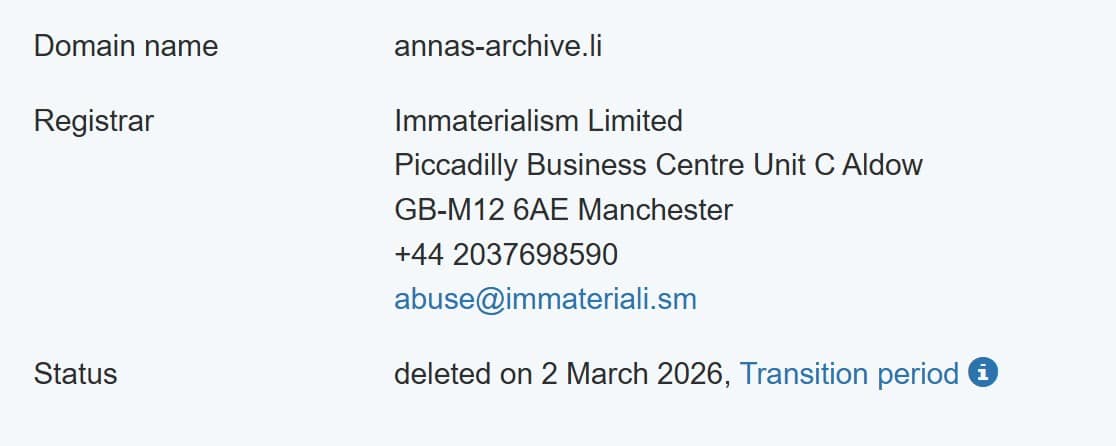
As a result of the domain deletion, Anna’s Archive is down to a single domain name, the Greenland-based annas-archive.gl, which was just added last month after it lost the .pm domain. If that pattern repeats itself, the site will likely add another backup domain name soon.
Given the continued pressure from the music industry through its U.S. lawsuit, as well as a separate injunction from OCLC in another lawsuit, legal pressure on the site has been relentless this year.
The Swiss Connection
At the time of writing, it is not clear who deleted the domain. Technically, domain registrars and registries both have the authority to take this action. However, neither acted when the injunction was first issued, so something must have changed.
The .li domain name was registered through Immaterialism Limited, which is connected to the domain privacy service Njalla. The same company also registered Anna’s Archive’s .gl domain, which remains online. Therefore, it seems unlikely that the registrar took action here.
That leaves the registry, the Switzerland-based Switch Foundation, as a likely candidate. However, Switch told us in January that foreign court orders don’t generally apply to its foundation.
“As a general matter, foreign court orders do not automatically have legal effect on Switch. Switch evaluates such matters solely in accordance with applicable local laws,” a Switch spokesperson said at the time.
It is possible, however, that the music industry’s global trade group, IFPI, has since gotten involved as well. The prominent music group is known for its anti-piracy work and happens to have its legal headquarters in Switzerland.
TorrentFreak reached out to both the Switch Foundation and registrar Immaterialism Limited, hoping to clarify the situation. As of publication, neither has replied to our requests for comment.
For now, the shadow library is down to a single working domain, and the pressure shows no sign of letting up.
From: TF , for the latest news on copyright battles, piracy and more.



 Operating a pirate IPTV service can be a dangerous endeavor, no matter where one’s located. In the United States, home to Hollywood and other major entertainment outfits, the risks are arguably even higher.
Operating a pirate IPTV service can be a dangerous endeavor, no matter where one’s located. In the United States, home to Hollywood and other major entertainment outfits, the risks are arguably even higher.
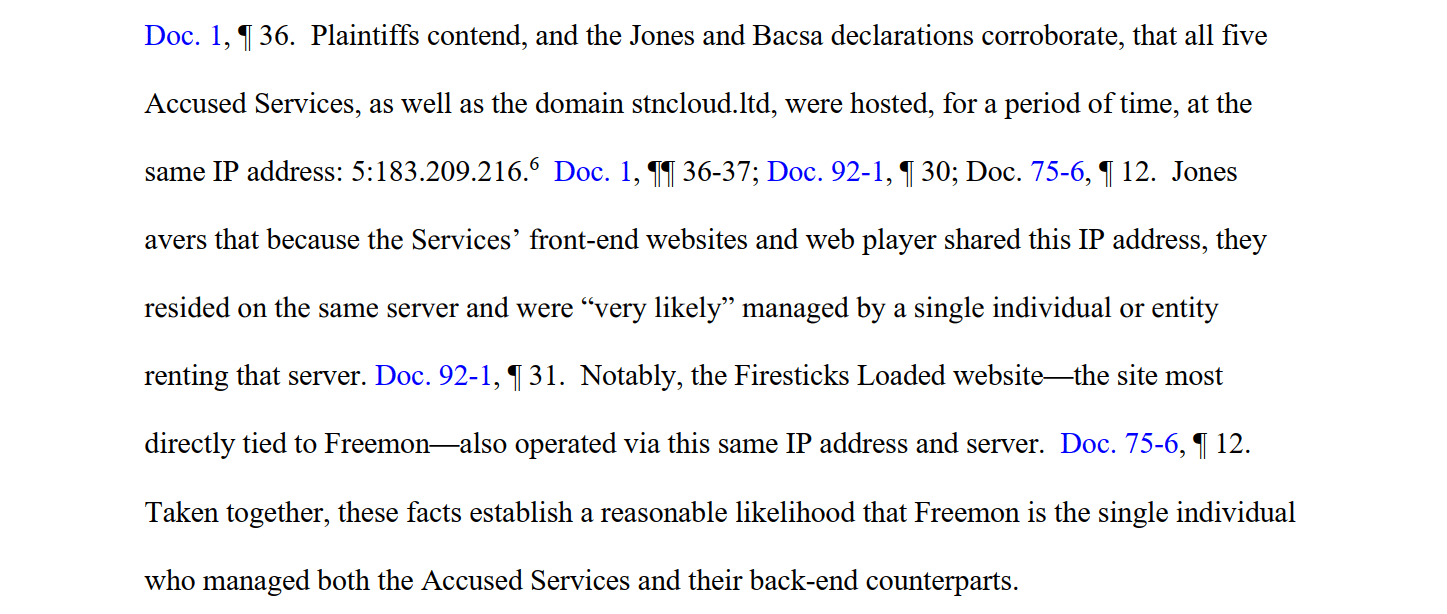


 The European football association (UEFA) protects the multi-billion-dollar interests of European football around the globe.
The European football association (UEFA) protects the multi-billion-dollar interests of European football around the globe.
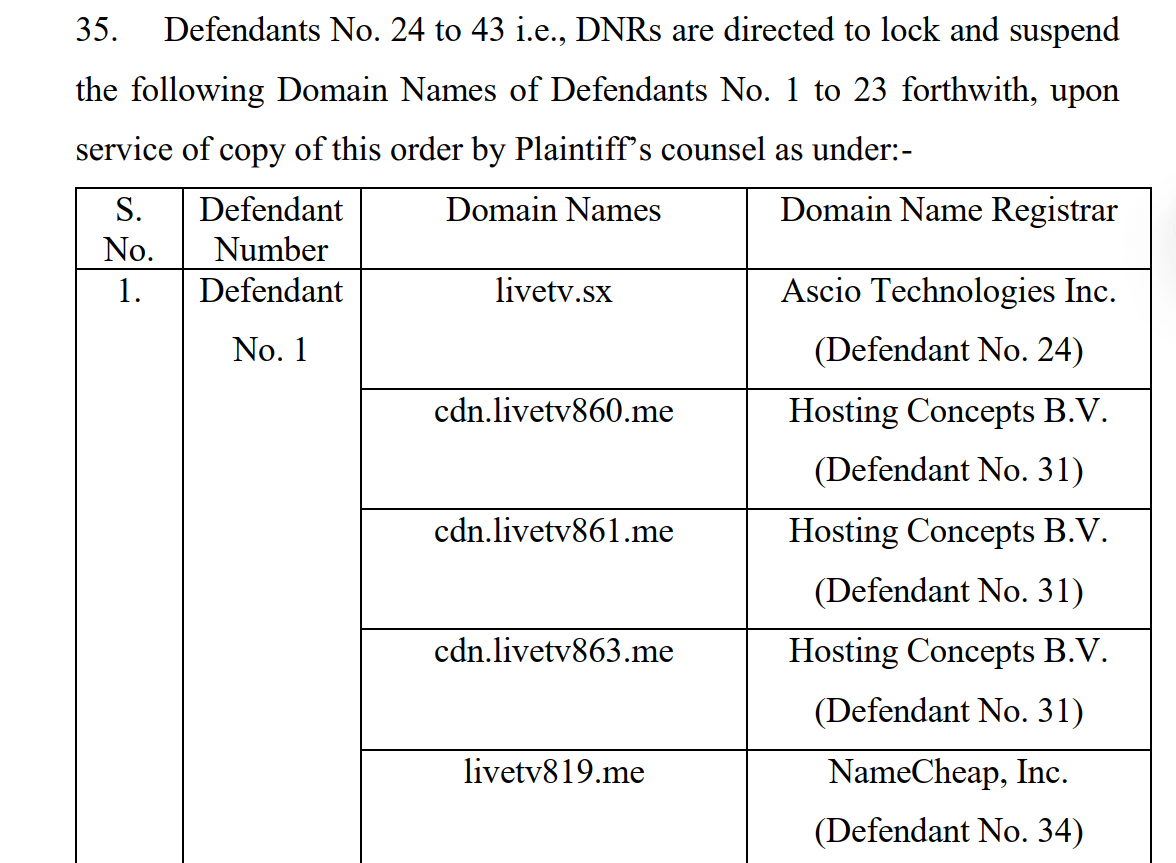

 Flava Works is an Illinois-based adult entertainment company specializing in content featuring Black and Latino men.
Flava Works is an Illinois-based adult entertainment company specializing in content featuring Black and Latino men.
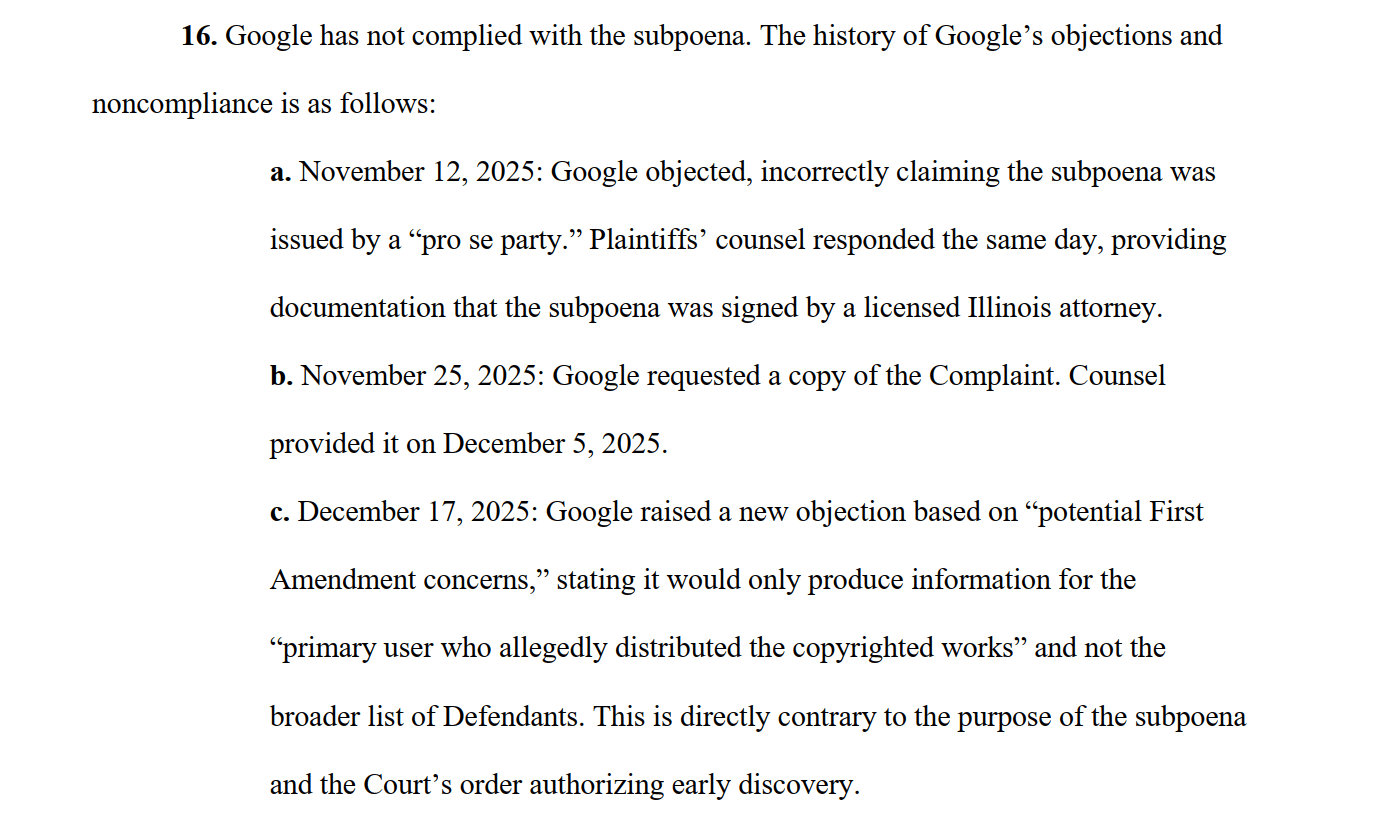

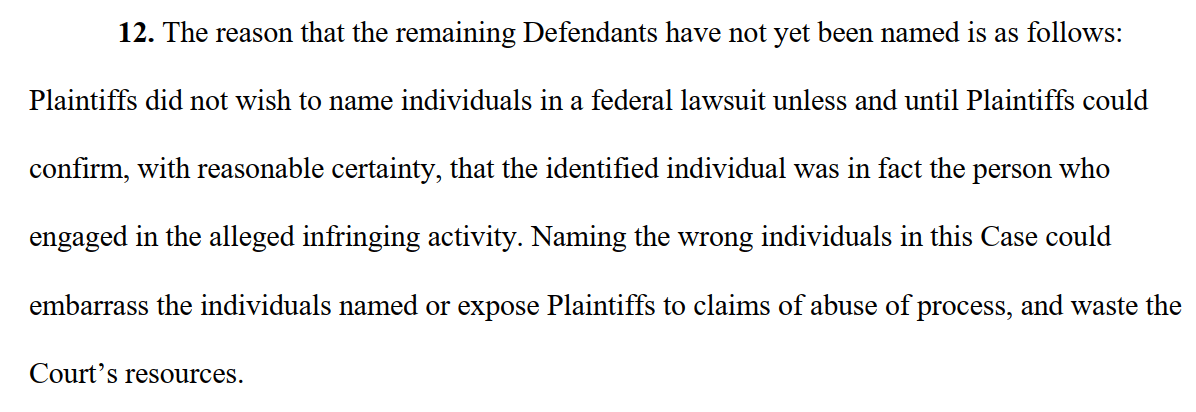
 Automattic, the company behind the popular blogging platforms WordPress.com and Tumblr, has been documenting DMCA takedown abuse for
Automattic, the company behind the popular blogging platforms WordPress.com and Tumblr, has been documenting DMCA takedown abuse for
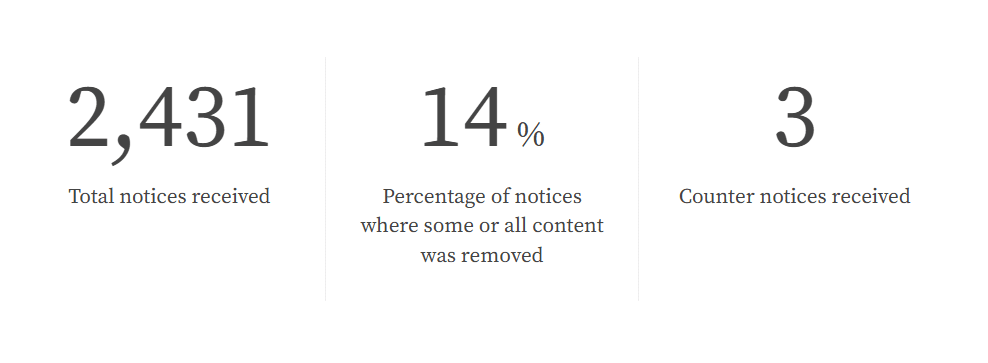
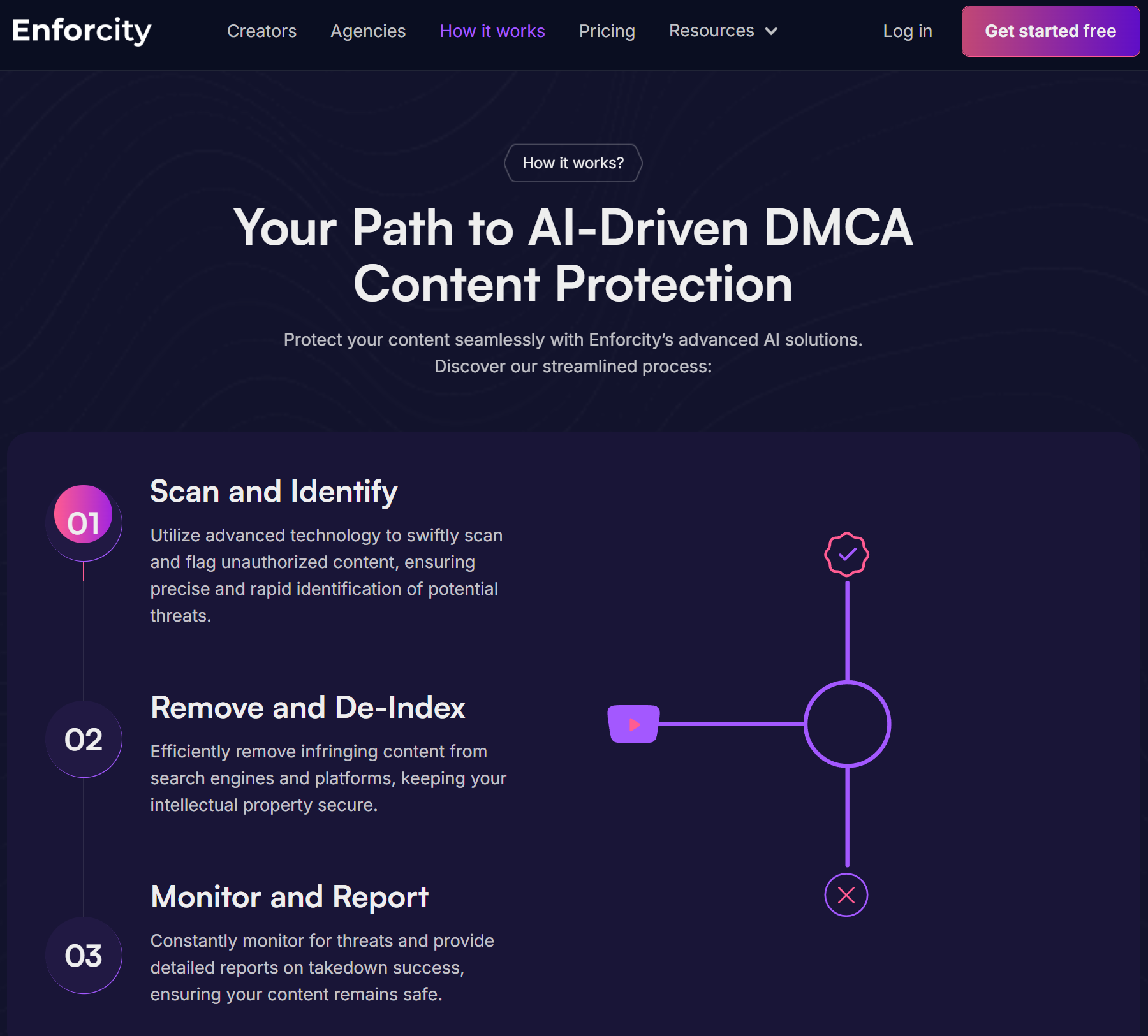
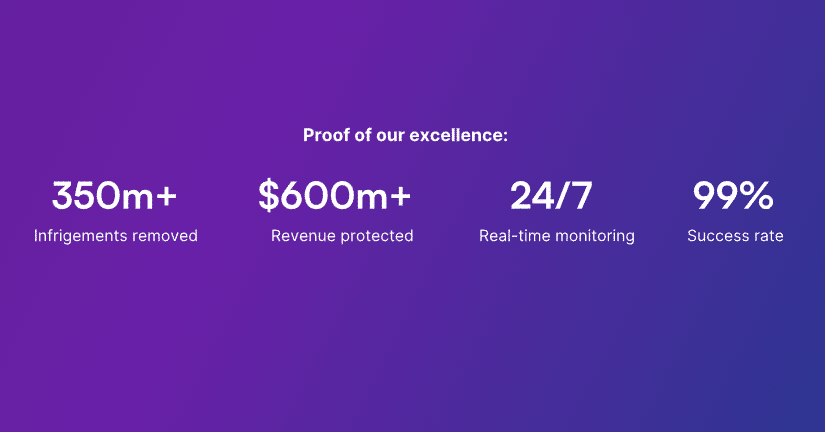
 In July 2025, adult content producers Strike 3 Holdings and Counterlife Media
In July 2025, adult content producers Strike 3 Holdings and Counterlife Media
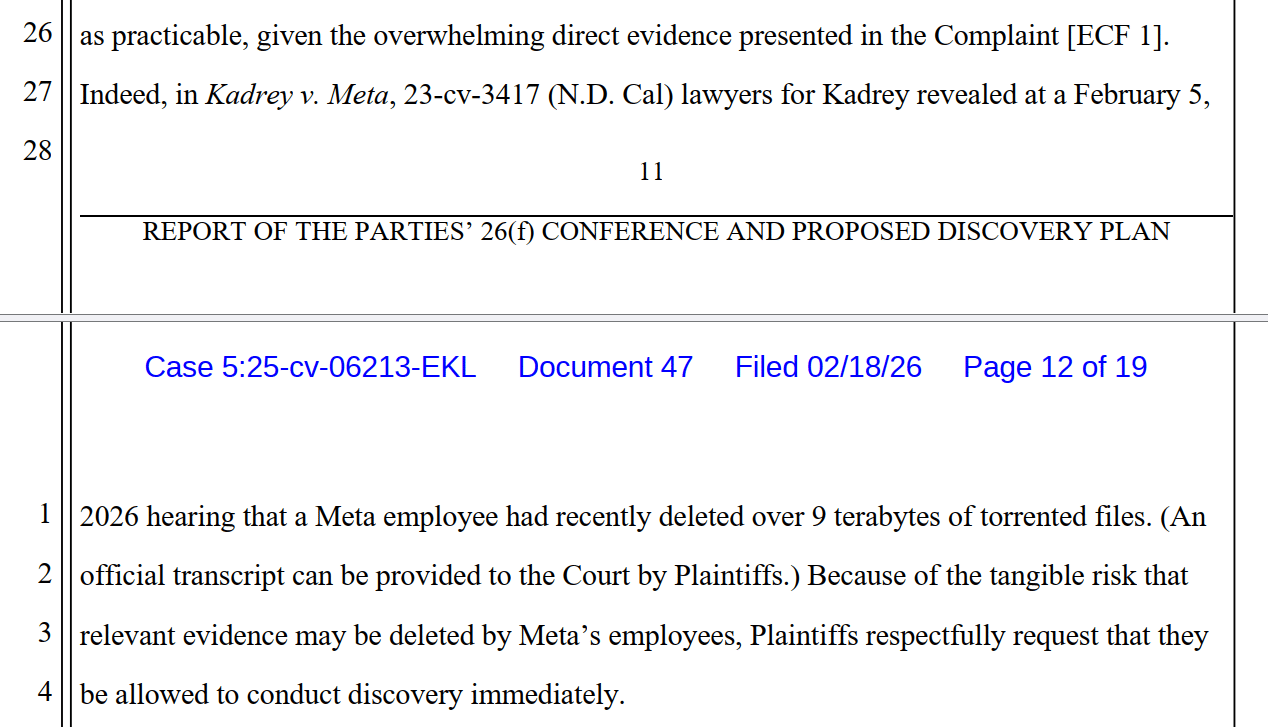
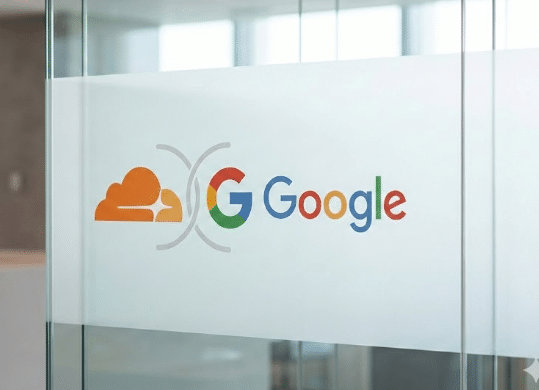 Belgium has become one of Europe’s most active testing grounds when it comes to pirate site-blocking enforcement.
Belgium has become one of Europe’s most active testing grounds when it comes to pirate site-blocking enforcement.
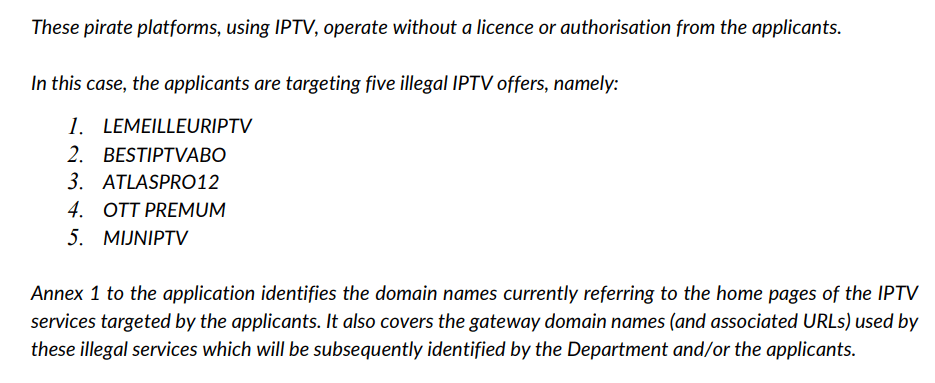
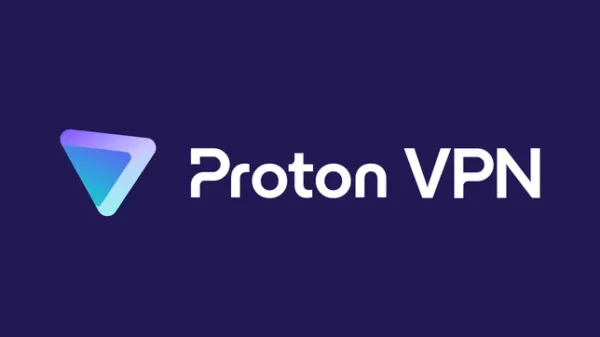 Earlier this week, a Spanish court ordered ProtonVPN and NordVPN to block pirate LaLiga streams on their networks.
Earlier this week, a Spanish court ordered ProtonVPN and NordVPN to block pirate LaLiga streams on their networks.
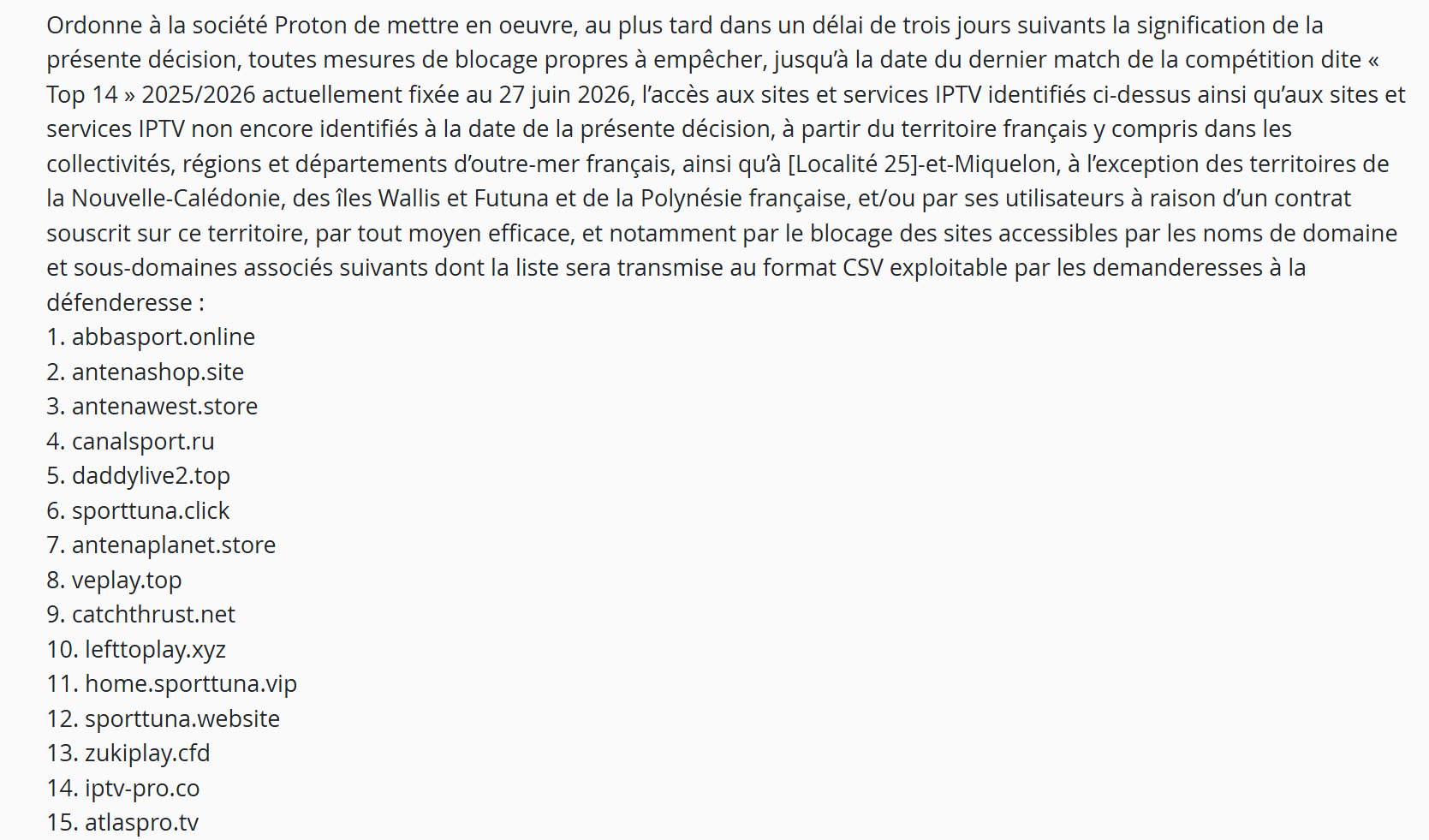
 Every year, the Office of the U.S. Trade Representative (
Every year, the Office of the U.S. Trade Representative (
